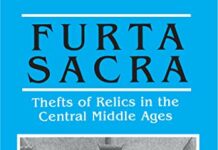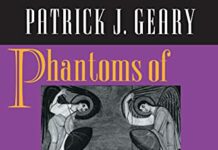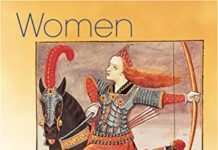
Ebook Info
- Published: 2003
- Number of pages: 216 pages
- Format: PDF
- File Size: 13.13 MB
- Authors: Patrick J. Geary
Description
Modern-day Europeans by the millions proudly trace back their national identities to the Celts, Franks, Gauls, Goths, Huns, or Serbs–or some combination of the various peoples who inhabited, traversed, or pillaged their continent more than a thousand years ago. According to Patrick Geary, this is historical nonsense. The idea that national character is fixed for all time in a simpler, distant past is groundless, he argues in this unflinching reconsideration of European nationhood. Few of the peoples that many Europeans honor as sharing their sense of ”nation” had comparably homogeneous identities; even the Huns, he points out, were firmly united only under Attila’s ten-year reign.Geary dismantles the nationalist myths about how the nations of Europe were born. Through rigorous analysis set in lucid prose, he contrasts the myths with the actual history of Europe’s transformation between the fourth and ninth centuries–the period of grand migrations that nationalists hold dear. The nationalist sentiments today increasingly taken for granted in Europe emerged, he argues, only in the nineteenth century. Ironically, this phenomenon was kept alive not just by responsive populations–but by complicit scholars.Ultimately, Geary concludes, the actual formation of European peoples must be seen as an extended process that began in antiquity and continues in the present. The resulting image is a challenge to those who anchor contemporary antagonisms in ancient myths–to those who claim that immigration and tolerance toward minorities despoil ”nationhood.” As Geary shows, such ideologues–whether Le Pens who champion ”the French people born with the baptism of Clovis in 496” or Milosevics who cite early Serbian history to claim rebellious regions–know their myths but not their history.The Myth of Nations will be intensely debated by all who understood that a history that does not change, that reduces the complexities of many centuries to a single, eternal moment, isn’t history at all.
User’s Reviews
Editorial Reviews: Review “Geary’s lucid and expert examination of the circumstances in which . . . stories and identities were created . . . offers a satisfying and . . . often a subtle approach to some of the most elusive aspects of a complicated period. Its methodology is brilliantly and persuasively vindicated.”—R.I. Moore, Times Literary Supplement”In this compelling historical treatise, Geary debunks the myth that modern European national and ethnic groups can be traced to distinct ancient or early medieval peoples. . . . [H]is arguments are important in light of the nationalistic excesses of the 20th century, and his conclusions are sure to provoke controversy among scholars.” ― Publishers Weekly”An admirable survey of a complicated and important subject.”—Kelly McFall, History: Review of Books”Patrick Geary’s The Myth of Nations is more timely than he could have anticipated. . . . Since 1989, this period–between the third and eighth centuries–has been persistently misrepresented by Europe’s nationalist and racist populations, who claim to find in the Middle Ages some kind of justification for their policies. . . . Demythologizing the early Middle Ages entails first understanding how the myths were created in the 19th century. Geary is blunt … it is impossible to map linguistic or ethnic identities onto national territories. . . . Ethnicity is ‘impervious to mere rational disproof.’ This is why Geary’s message is so compelling, and why it matters to keep faith with reason: getting Europe’s medieval past straight gives a bearing on its future.”—J.L. Nelson, London Review of Books Review “A book of the best possible originality. It presents a theme that has been hotly debated in modern scholarly circles with a novel freshness, while drawing the attention of the reader to the urgent relevance of such debates to the history of modern Europe. This is a book of quite exemplary clarity. It deserves to be widely read and will doubtless spark off lively discussion among scholars.”―Peter Brown, Princeton University From the Back Cover “A book of the best possible originality. It presents a theme that has been hotly debated in modern scholarly circles with a novel freshness, while drawing the attention of the reader to the urgent relevance of such debates to the history of modern Europe. This is a book of quite exemplary clarity. It deserves to be widely read and will doubtless spark off lively discussion among scholars.”–Peter Brown, Princeton University About the Author Patrick J. Geary is Professor of History at the University of California at Los Angeles. He is the author of Phantoms of Remembrance: Memory and Oblivion at the End of the first Millennium (Princeton), Living with the Dead in the Middle Ages, and Furta Sacra: Thefts of Relics in the Central Middle Ages (Princeton). Read more
Reviews from Amazon users which were colected at the time this book was published on the website:
⭐This is a very fun essay, designed to make us examine the mythology behind the nationalism that arose at the end of the 19C, as supported by myths of ancient heroism or lineage. It is supposed to be for the general reader, not the specialist, but I think it is rather rarified in terms of the recondite details he gets into. To prove his point, he gets very deep into the way that Romans viewed barbarian incursions, how they absorbed the different peoples once order broke down, and then what came after in the Dark Ages. Now, this happens to fascinate me, i.e. who the Lombards or the Huns actually were, how they came to be, etc. I have read many books about it, such as the masterful Empires and Barbarians, by Peter Heather.He begins with an examination of the origins of nationalism, in the 19C. Beyond the mobilization of resources that railways and an industrial economy made possible, it needed a founding ideology, some myth upon which to build the legitimacy of new modes of power. This was found in a nationalist narrative, supported by deep scholarly endeavor (as supported by the state) and disseminated in the standardized curricula as established in basic education.The basis of this was found in claims of continuous legitimacy, as based in law, ancient tradition, ethnic-linguistic heritage, and conquest. The rest of the book is a painstaking examination of this notion from 200 to 1000 CE, to debunk the continuity part of it. In a word, he argues that ethnicity is a myth, that groups of people aggregated around charismatic leaders as they built empires or opposed oppressors. People joined, learned the languages of the powerful, and adopted identities. To imagine that these ethnic groups were longstanding with illustriously heroic histories is, he says, romantic nonsense for the most part. From my own research, I am certain that the author is absolutely correct. It reflects both the Jewish Exodus and the arc of Roman history, from the republic and its fall to barbarian invasions. They are compelling narratives that shapes how we saw things for centuries.The devil is in the details. This is where the book becomes rather recondite. From personal interest, I have read a lot about the fall of Rome and the early middle ages and am curious about the Avars, Lombards, and Franks. There is wondeful inquiry into all of this, over more than 100 pages. It was a delight to me, but I wonder if other readers would find it as interesting as an antique history nerd like myself. I offer this as a warning to the general reader – it really is the stuff of academics.Finally, the book ends rather abruptly, without a wrapup argument and without pushing the argument to the end. He wants to help Europeans manage their differences by pointing out that ethnic origins are myths, that they should be more rational. For my part, I thought about the dilemmas in the middle east regarding disputed lands and all their arguments of historical legitimacy.I enjoyed this book, but I can’t say I found anything all that new in it. Recommended. But go into it with the right expectations.
⭐This is a book about the tribes which occupied Europe from the late Roman Empire until near modern times. The book challenges everything you thought you knew about the inevitability of certain tribes surviving intact. Historical knowledge is sparse because so little of it is written contemporaneously, unlike with the Greeks and the Romans.The authors write in an academic style, not in a style designed to attract the casual reader, but the material speaks for itself to inquiring minds who are interested in the subject.
⭐Having an interest in the medieval origins of peoples/ethnicities, I figured this would be an interesting read. Not too long or tiresome and the theory regarding the fluid nature of Europe’s populations developed by the author is a quite different approach to much of the medieval history we are already comfortable with. Some new historical concepts regarding ‘peoples’ or ‘tribes’, etc.
⭐Better than most histories because it is based on a thesis that there is no such thing as a “real” German or Frenchman, etc, or by projection “real” American. Being a real American is based on a state of mind which has little to do with when your forebears came here. People have always migrated and will continue to do so.
⭐The Seller was great. The historical content of the book is in question.
⭐A fresh angle on an old subject. Worth a visit if you are into the field. Or if you would like to see a unified Europe.
⭐Very interesting
⭐Good condition
⭐Excellent book! A must-read for every historian or scholar of contemporary politics and identity debates, but ideally also for everybody else who is interested who we frame who “we” are and what defines us. Geary has a crisp style and does not shy away from bold statements, which, however, he always succeeds in backing up with facts. Clear recommendation!
⭐very beauty
Keywords
Free Download The Myth of Nations: The Medieval Origins of Europe in PDF format
The Myth of Nations: The Medieval Origins of Europe PDF Free Download
Download The Myth of Nations: The Medieval Origins of Europe 2003 PDF Free
The Myth of Nations: The Medieval Origins of Europe 2003 PDF Free Download
Download The Myth of Nations: The Medieval Origins of Europe PDF
Free Download Ebook The Myth of Nations: The Medieval Origins of Europe



